
Is Caffeine Your Worst Enemy?
Is Caffeine Your Worst Enemy?
Coffee and energy drinks have certainly become a vital part of our daily lives. The day usually doesn’t begin until we’ve had our caffeinated beverage of choice and we also find it hard to go a day without consuming one.
Trying to skip your morning coffee can cause painful headaches that not even Tylenol can help with. Not to mention the irritability you get that’ll make you want to snap at the lightest communication from a co-worker. You’ll find yourself in a fit of stimulant-neglected rage writing, “per my last email” in the most passive-aggressive nature that rewards you with a few HR points.
This is the nature of caffeine dependence and unfortunately, it’s far too common in most adults as we use it to try and take on the daily obstacles in life.
I love shotgunning an energy drink and burying myself in pre-workout just as much as the next person, but that doesn’t mean it’s the right thing to be doing every single day.
Now, why is it that we rely on caffeine and how does it seem to cause more problems than it does have benefits? For something so widely available, there doesn’t appear to be much awareness or knowledge-based information readily advertised about what the effects of caffeine consumption are.
After all, this is a general trend in which caffeine is regularly available in soft drinks and sodas that are marketed to children and young adults. In turn, energy drinks and unhealthy beverages are normalized at especially young ages.
So, what is caffeine and why do we feel such a need to incorporate it daily? What happens when we become dependent on caffeine and stimulants alike?
In this article, we break down the answers to these questions and provide informative benefits of taking caffeine but also how it can cause a major disruption from a negative aspect.
Caffeine is Addicting
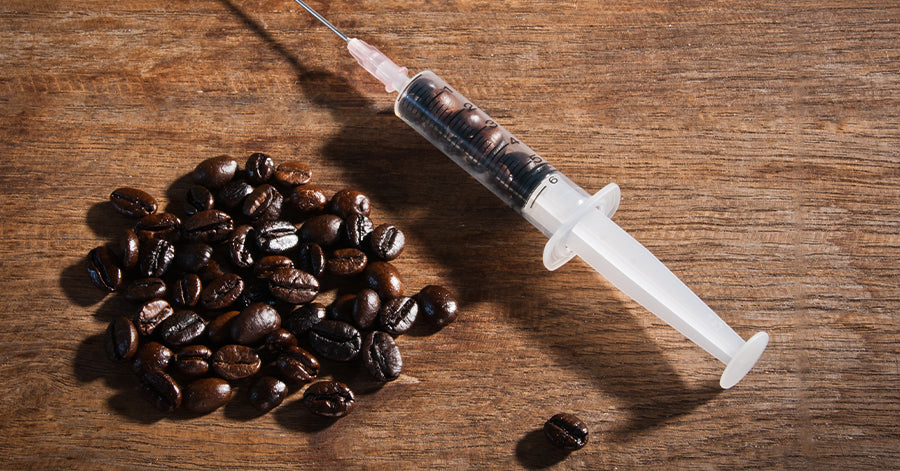
Contrary to what most people believe, caffeine is actually a drug – well, sort of. Caffeine can be classified as a drug since it works similarly to that of nicotine and most drugs. You can become addicted to caffeine as you continue to use it due to its effects on the central nervous system and how it can help you feel more alert and awake.
In actuality, caffeine and stimulants are simply just a ‘mask’ for the central nervous system as they only help you gain a sense of alertness temporarily. For example, if you had a late night and consumed caffeine the next morning, you may feel a bit more energized but then you notice a huge crash later on where you feel like you can fall asleep at any time.
This is because caffeine is simply blocking adenosine causing you to feel tired. It doesn’t cause it to go away, and using stimulants simply just works as a temporary fix and when the caffeine wears off, you’re more tired than you would’ve expected.
Adenosine is what our body produces that makes us feel tired. By consuming caffeine, your body will still keep producing adenosine no matter what as caffeine does not simply just make it “go away”.
Becoming addicted to caffeine is far more common than most people will realize. As you continue drinking coffee and energy drinks each day, your body starts to adapt to this and then you find that you have to consume more caffeine to get the effects you’re looking for.
By now, you’ve developed a dependency and are pretty far into an addiction.
The Negative Aspects of Caffeine
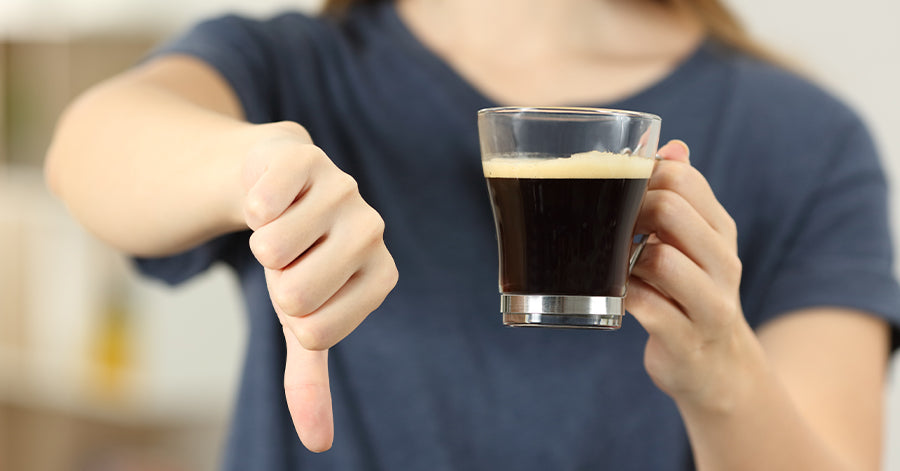
Many of you might be experiencing or have experienced side effects of caffeine and stimulant usage… If you’re in the 1% and have never relied on caffeine, then there are some important things you should know about how caffeine can negatively affect the body and brain.
For starters, the overconsumption of stimulants can cause a major disruption within your normal life if you’re not careful and adhering to caffeine consumption guidelines and daily intake. Most importantly, sleep.
Caffeine-Induced Insomnia
Sleepless nights make for rough days ahead from a proactive standpoint. You can blame caffeine for this if you’re constantly running into this issue regularly. Irregular sleep patterns and chronic insomnia/fatigue can be directly related to your caffeine and stimulant consumption.
Unfortunately, the common trend is to counteract restlessness with more caffeine and stimulants which continues pushing this cycle along until you no longer have any sense of normality for sleeping. What’s also glaring is the fact that sleep is extremely vital to your overall health and well-being – if you’re not getting an adequate amount of sleep, then you’re increasing the body’s cortisol output which increases overall stress.
What exactly does this mean for your body? Well, it means you’ll probably have issues with productivity, losing weight, gaining muscle, sex drive, maintaining a positive outlook, and a happy mood. Not getting the right amount of sleep can throw your body through the ringer as well as the alarmingly negative mental effects.
Cardiovascular Health Impacts of Caffeine
Heart health is nothing to take lightly, and if you’re not careful – consuming caffeine at an excessive rate can take its toll on everything cardiovascular-related. From an increased heart rate to reduced blood flow – the overconsumption of stimulants can raise many red flags within your body.
Caffeine is primarily a vasoconstrictor in which blood flow is restricted to the body compared to vasodilators that allow for more open and better blood flow. Constricting blood vessels and not allowing for proper blood flow can take its toll across the body in multiple different scenarios. If you’ve ever noticed that your pal downstairs is having difficulty waking up, this can be attributed back to caffeine’s vasoconstrictor properties among many other effects.
If your significant other is complaining about that, then you should probably look to avoid consuming caffeine either altogether or not around the time of intimacy just as a rule of thumb. Sexual health is just as important as anything else since it can also play a role in your mental state – being a disappointment in the bedroom is certainly not something that helps both mentally and morally. A deflated ego stemming from erectile dysfunction caused by overconsumption of caffeine and stimulants can be a true bummer.
Onset adrenal fatigue is a major issue with stimulant dependency – if you’re looking to help support adrenal levels, NuEthix Formulations created the perfect product in, Adrena-Health. This top-rated formula can help with sustainable energy levels and support hormonal balance by regulating cortisol so you no longer have to suffer from the negative aspects of adrenal fatigue stemming from caffeine overconsumption.
Caffeine Withdrawals
The withdrawals that come from getting off caffeine are no joke. They can be brutal and sometimes even debilitating in certain instances. While it may not be the same as something like quitting smoking, cutting out caffeine cold turkey can be just as difficult in similar ways.
Once you’ve developed an addiction and dependence on caffeine, you can suffer from agonizing headaches and fatigue simply by not having your daily coffee or beverage. Withdrawal symptoms can reveal themselves very quickly and can cause extreme anxiety and irritability as you suffer through the day.
This is why it’s always better to slowly cut back and reassess your caffeine tolerance to safely regain balance back into your life without relying heavily on stimulants. I would recommend that if you don’t wish to completely remove caffeine from your life, try going a week without it to build your tolerance back up and then add it back into your routine. You can use this strategy each time you feel like your tolerance is way too high.
The Positive Aspects of Caffeine

While there are many negative side effects of caffeine and stimulants, there are certainly many benefits to safely consuming them at a recommended amount. As long as you aren’t going crazy and drinking 3-4 energy drinks per day, there are a great deal of benefits.
To be clear on this, it also depends on your body and how you can handle all stimulants alike. If you’re prone to anxiety and/or have health-related issues, then this section probably isn’t for you.
If you’re a healthy individual in all regards, then these will certainly apply to you.
Increases Performance and Productivity
Caffeine can help boost alertness and give you the added boost of energy you need to maintain a high level of productivity throughout the day. Especially on days you feel like you may be lacking or you’re just having a hard time trying to focus – caffeine can help assist with this.
Stimulants such as caffeine can help with cognitive function as well which can be beneficial from a neurological standpoint due to the output of alertness in the brain.
Mood-Boosting Benefits
Decreased mental fatigue from caffeine consumption can help you feel more motivated and energized throughout the day as receptors in the brain become blocked from binding with adenosine which can trigger fatigue and depression.
Many dietary supplements have relied on the introduction of different blends of caffeine and nootropics to help enhance the benefits and features of cognitive health. Even some of the best mood-enhancing supplements or sports nutrition products will likely contain one or multiple sources of caffeine for added benefits.
If you are looking for something that has a clean source of energy without all the added stimulants, NuEthix Formulations created the ultimate intra-workout recovery supplement, Essential Energy. This scientifically backed research formula uses a blend of BHB salts and contains essential amino acids and branched-chain amino acids to help support optimal recovery.
Wrapping Up
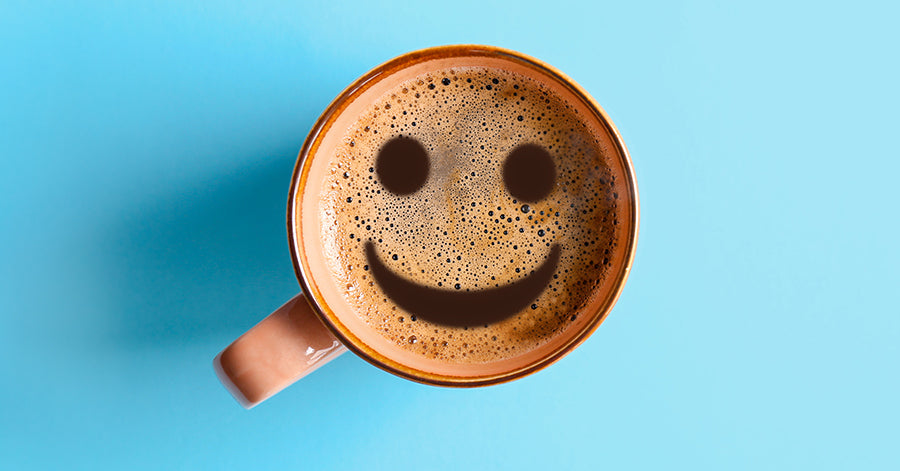
There are many logical reasons for relying on caffeine and the benefits of using stimulants are visible but like all good things, there are sure to be some negative side effects and consequences of abusing them.
Being smart and not going too hard by drinking a ton of caffeine or maybe just limiting yourself to two cups of coffee per day can go a long way in terms of health. Letting your body succumb to the downside of consistently relying on caffeine shouldn’t be your first and only choice.
Do your research, look at labels, assess your tolerance, understand and listen to your body – make the right choices, and quite literally, just don’t overdo it.

Austin Perry
Veteran fitness and health writer Austin Perry has accrued almost a decade worth of experience in sports nutrition and supplementation while having numerous featured articles published and shared within the wellness community.
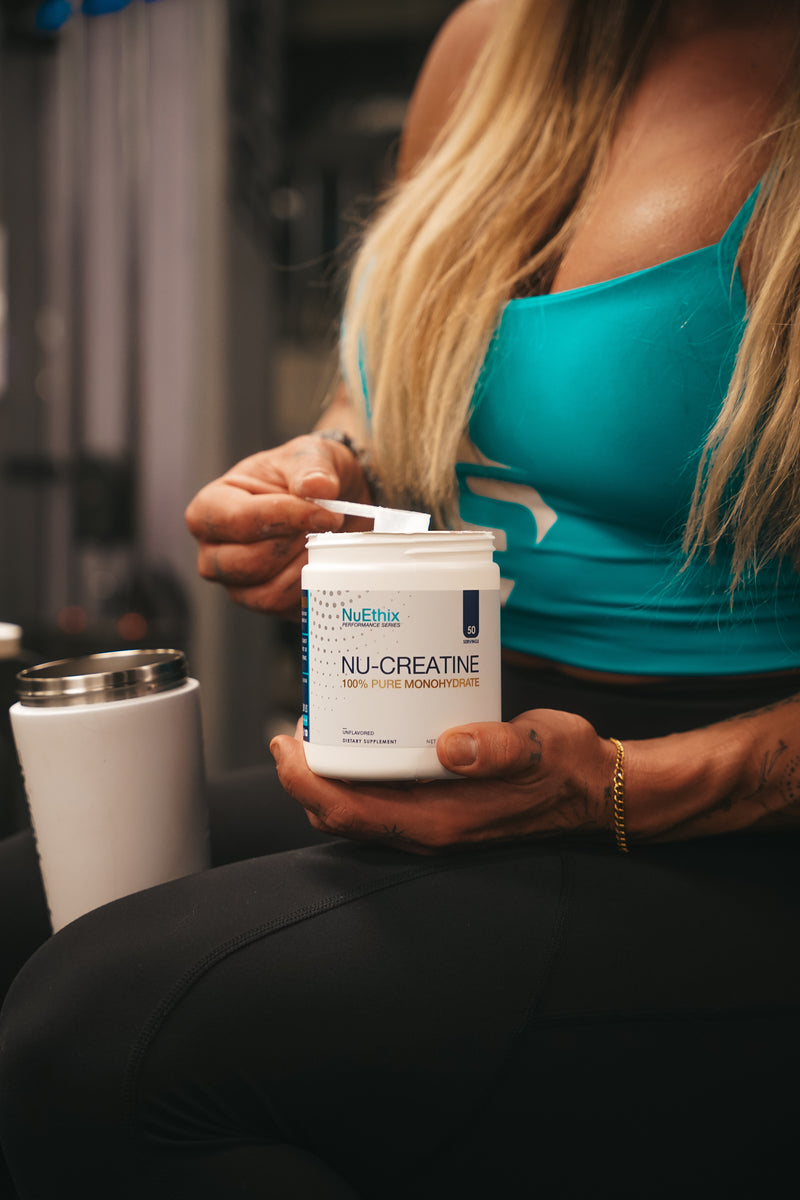
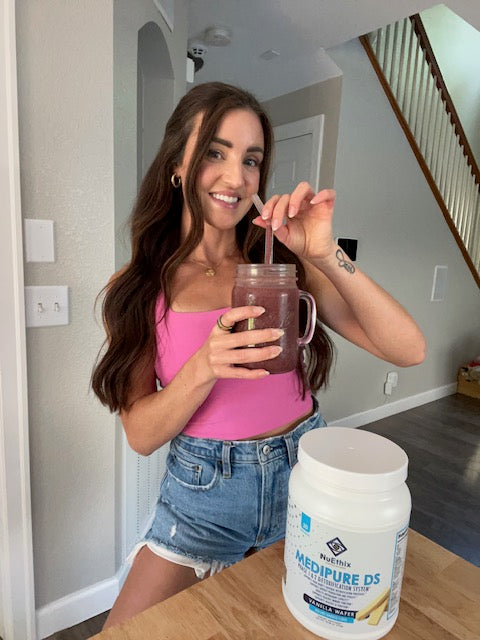

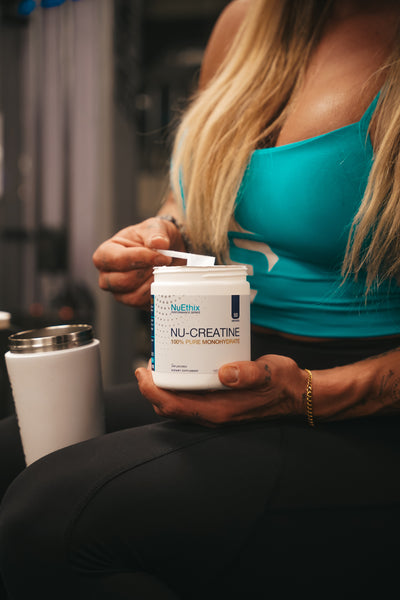
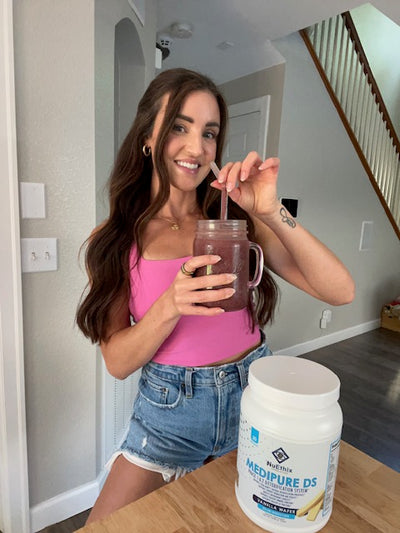


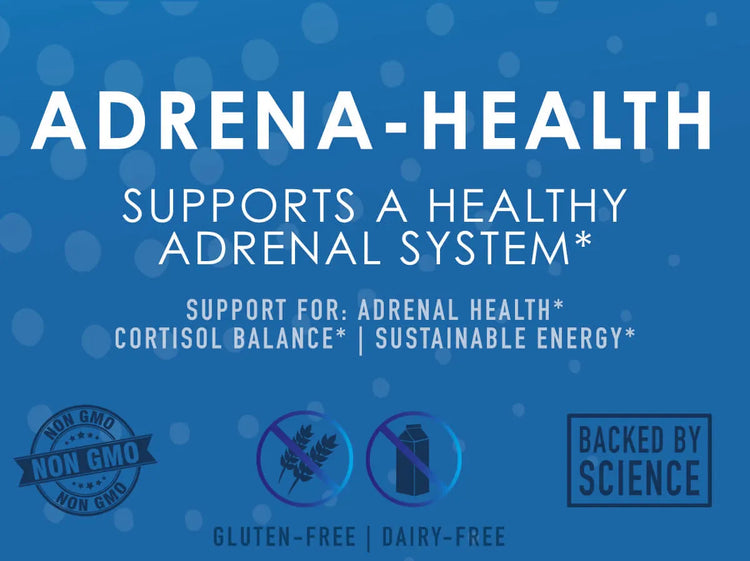
I just took a month or so to wean down from a few cups of brewed coffee down to a half cup of black tea, with the goal of being caffeine free in another week. Already I have noticed improved, deeper sleep but also even energy all day where before I felt like I was always crashing in the afternoon. For some reason my mood was crabby at first as I was cutting back, but lately it’s been very calm and cheery. I can’t remember feeling this good, and I have five kids under 5 years old (including 18 month old triplets). I can make it through my day better now than before, because I have more natural energy. I’m grateful I had coffee when my kids didn’t sleep through the night, but now I’m grateful to be almost caffeine free.
Cj on